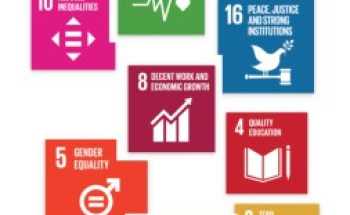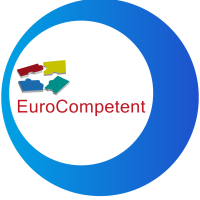
¸Integrated curriculum
Project based learning and multidisciplinary approach to learning replaces encyclopedic one. It helps students and teachers to share responsibility of teaching and learning. Iti s based on skills and competencies learning instead learning academic knowledge and pure facts.
Integration focuses on making connections for students, allowing them to engage in activities related to real life.
Description
Schools are places where young people must be prepa-red for communities of the 21st century. Skills based education ad-dresses schools as agents for whole students' development.This ap-proach also means implementation of modern and different met-hods of teaching which will focus on students' creativity, ctitical thinking, cooperation and help them improve their abilities.
An integrated curriculum is described as one that connects different areas of study by cutting across subject-matter lines and emphasizing unifying concepts.
Integrating multiple topics into one coherent topic is not an easy task. It requires extensive planning that could take a lot of time.Limited under-standingoftopics. By integrating multiple topics into a single theme, one could limit the depth of understanding that students have on each topic.
An integrated program is based on skill development around a topic that is relevant to the students.
Registration:
https://snjezanamaric.aidaform.com/free-conference-registrat
Learning objectives
• changes in their knowledge, skills, attitude or behaviors.
• allows children to pursue learning in a holistic way, without the restrictions often imposed by subject boundaries.
• To focuse upon the inter-relatedness of all curricular areas in helping children acquire basic learning
• To make connections among concepts and experiences so that information and skills can be applied to novel and complex is-sues or challenges.
• fosters the ability to connect and combine knowledge and skills acqu-iredthroughthecurriculumandtheco-curriculumtonewcomplexsituations within and beyond the college and to foster reflection on the ways that such knowledge is utilized
• provides students with the opportunity to see the interconnec-tedness and interrelationships between the different parts of curriculum
Methodology & assessment
Assessment will be carried out prior to the course by means of analysis of participants’ interests, and designing learning scenarios for the particular class each participant works in.
Materials, digital tools & other learning resources
Materials include warticles.orksheets, copies of introduced good practice examples, video materials, presentations and links to useful
Certification details
The certificate of attendance issued by the provider contains duration of the course, number of lessons attended, topics covered, skills and competencies obtained, name and reference number of the project, location, name of the expert in charge, signature of the legal
representative of the provider and stamp..
If requested - a Europass Mobility Certificate will be issued.
We provide participants with help in completing Learning Agreements, as well as any documents necessary for their organisations.
Pricing, packages and other information
-
Price:400Euro
-
Course package content:
course expenses
-
Additional information:Description of the services and activities included in the course package (such as accommodation, meals, transport) or available at extra cost.
-
Cancellation & changes:
The options and conditions for change and cancellation, and the policy in case of unforeseen circumstances (force majeure) will be agreed upon between atendees and the course provider and stated in the initial contract signed by both institutions.
-
Additional information:The options and conditions for change and cancellation, and the policy in case of unforeseen circumstances (force majeure).
Additional information
-
Language:English
-
Target audience ISCED:Primary education (ISCED 1)Lower secondary education (ISCED 2)Upper secondary education (ISCED 3)
-
Target audience type:TeacherHead Teacher / PrincipalTeacher Educator
-
Learning time:25 hours or more
Upcoming sessions
More courses by this organiser

Sustainable development goals and active citizenship

How students learn - What can Neuroscience Teach Us about Teaching?


